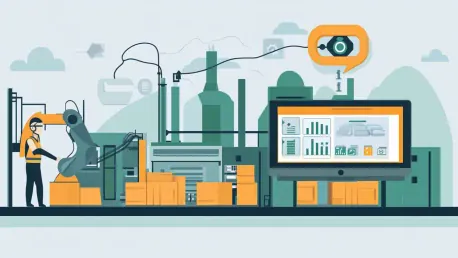As artificial intelligence continues to evolve at a breakneck pace, its impact on various sectors becomes increasingly profound, setting the stage for a future where AI-powered tools enhance productivity, decision-making, and efficiency on an unprecedented scale. The revolutionary potential of AI is not just a distant dream but rapidly becoming a reality with innovations pushing the boundaries in ways that were once unimaginable.
Integration of AI into Consumer Technology
With the advent of AI, consumer technology has undergone a profound transformation. Virtual assistants like Siri and Alexa leverage natural language understanding, enabling users to interact with their devices seamlessly. AI is also the driving force behind personalized recommendations on platforms like Netflix and Spotify, which analyze user behavior to tailor content suggestions. This integration of AI into everyday technology illustrates its capacity to automate tasks and enhance user experiences.
Healthcare Revolution
The healthcare industry is witnessing remarkable changes thanks to AI. Medical imaging analysis, for instance, uses AI algorithms to detect diseases with improved accuracy and speed. This capability not only aids in early diagnosis but also significantly reduces the workload of medical professionals. Additionally, AI-powered tools are instrumental in predictive analytics, enabling healthcare providers to anticipate patient needs and optimize treatment plans. These advancements underscore AI’s potential to revolutionize healthcare delivery and patient outcomes.
Financial Sector Enhancements
Artificial intelligence is revolutionizing the financial sector by bolstering fraud detection systems and streamlining transactions. AI algorithms are adept at identifying unusual patterns and anomalies, which helps in preventing fraudulent activities. Moreover, AI-driven customer service solutions such as chatbots and personalized financial advice systems provide customers with timely support and enhance overall service experience. These applications highlight how AI contributes to the security and efficiency of the financial industry.
Educational Advancements
AI’s integration into education is transforming how students learn and educators teach. Adaptive learning systems tailor educational content to individual student needs, thereby creating personalized learning experiences. AI tools also assist in grading and providing feedback, which allows educators to focus more on teaching and less on administrative tasks. This shift not only improves educational outcomes but also fosters a more engaging and supportive learning environment.
Autonomous Systems in the Automotive Sector
The automotive industry is experiencing rapid advancements due to AI’s role in developing self-driving vehicles. AI-powered systems enhance navigation, obstacle avoidance, and decision-making processes, making autonomous cars safer and more reliable. Furthermore, AI aids in predictive maintenance and supply chain management, optimizing the production and servicing of vehicles. These innovations signify a future where AI fundamentally alters the landscape of transportation.
Emergence of AI-powered Applications
Several AI-powered applications are making significant strides in professional productivity and personal use. Tools like ChatGPT and Grammarly improve written communication, while Synthesia and Microsoft Copilot assist in content generation and workflow enhancements. Applications such as FaceApp and Google Assistant cater to personal preferences and productivity needs, showcasing the versatility of AI in different domains. These tools exemplify how AI can streamline daily tasks and elevate personal and professional efficiency.
Transformations in Business Operations
Businesses are leveraging AI to revolutionize operations and decision-making processes. Predictive analytics provide strategic insights, and AI-powered CRM systems enhance customer relationship management. Robotic process automation streamlines routine tasks, freeing up human resources for more complex activities. Additionally, AI optimizes logistics and inventory management within supply chain operations. These implementations demonstrate AI’s capacity to drive efficiency and innovation in the business world.
Future Trends in AI Software Development
The development of AI software is moving towards more personalized applications, integration with the Internet of Things (IoT), and advancements in conversational AI. The rise of explainable AI, which aims to make AI decision processes transparent and understandable, is crucial for building trust. There is also significant progress in edge AI, augmented and virtual reality, and low-code/no-code platforms, making AI more accessible to non-tech users. Ethical AI development remains a priority, ensuring that these technologies are used responsibly.
Thoughtful AI Implementation
Choosing the right AI software is pivotal for organizations aiming to harness AI’s potential. Key criteria include ease of use, integration capability, scalability, cost, customization, and vendor support. Businesses should carefully evaluate these factors to select solutions that align with their specific needs. Proper implementation of AI can lead to transformative changes, driving growth and efficiency across various sectors.
Prospective Developments in AI
As artificial intelligence progresses at a rapid pace, its influence on various industries grows more significant, paving the way for a future where AI-driven tools boost productivity, decision-making, and efficiency like never before. In fields ranging from healthcare and finance to education and beyond, AI is transforming the way professionals approach problems and find solutions. Advanced algorithms and machine learning are enabling quicker data analysis, leading to more informed choices and streamlined operations.
The revolutionary power of AI is not just a fantasy of the distant future; it’s swiftly becoming a reality. Innovations in AI are pushing boundaries in ways previously thought impossible. For example, in healthcare, AI can predict patient outcomes and personalize treatment plans, while in finance, it’s optimizing trading strategies. These advancements highlight the potential for AI to create significant shifts across the board. As AI technology continues to evolve, its applications and benefits expand, promising a future where it plays an integral role in enhancing our daily lives and industries worldwide.









